
When you take out a loan, you enter into a legally binding agreement to repay the borrowed amount along with any agreed-upon interest. However, life’s unforeseen events can sometimes make it difficult to meet this obligation. Failing to pay back a loan can lead to serious consequences, including damage to your credit score and persistent calls from debt collectors. But what happens when these measures don’t work? Can a lender take legal action to recover the owed money, and if so, what does that process entail?
Key Takeaways
- Legal Framework: In South Africa, loan repayments are regulated by the National Credit Act (NCA) and enforced by the National Credit Regulator (NCR), providing borrowers with rights and protections against unfair lending practices.
- Default Consequences: Defaulting on a loan can severely impact credit scores and may lead to legal action, asset seizure, or involvement of debt collection agencies to recover the owed amount.
- Court Process and Defences: Legal action for loan default involves summons, possible default judgements, and wage garnishment. Borrowers can defend themselves by negotiating payment plans or challenging the loan’s terms. Alternatives to court include debt counselling and debt review.
About Arcadia Finance
Obtain your loan smoothly with Arcadia Finance. Enjoy the advantage of no application fees and the option to select from 19 trustworthy lenders, each adhering to the regulations of South Africa’s National Credit Regulator.
Types of Loans in South Africa
In South Africa, there are different types of loans that individuals and businesses can take out. These include:
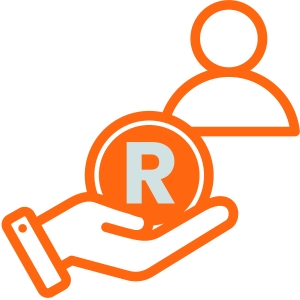
Personal Loans
Personal loans are unsecured loans that are taken out for personal use. They can be used for a variety of purposes, including debt consolidation, home improvement, or financing a large purchase.
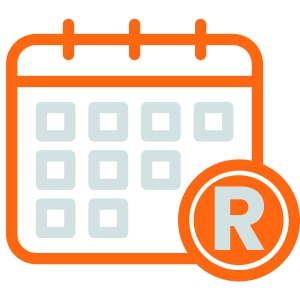
Payday Loans
Payday loans are short-term loans that are created to help the borrower cover unforeseen expenses until their next payday. These loans are typically high-interest and have strict repayment terms.
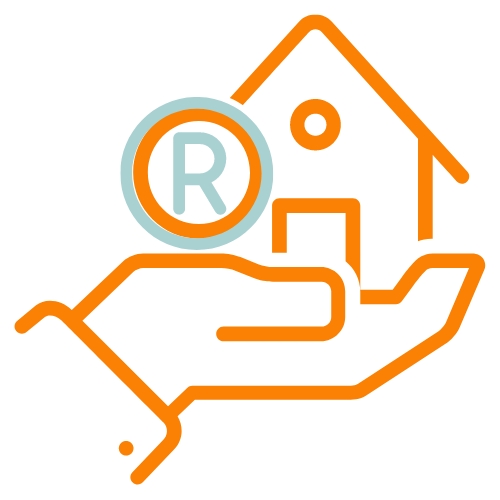
Home Loans
Home loans are loans that are taken out to finance the purchase of a home. These loans can be secured or unsecured and are usually paid back over a period of many years.
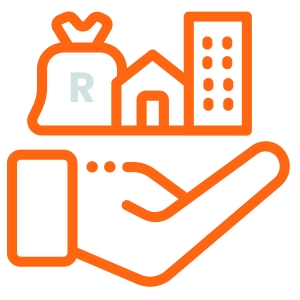
Business Loans
To finance various needs such as expansion, equipment purchases, or new projects, loans can be secured by businesses. These loans may be either secured or unsecured and serve diverse functions.
Regardless of the type of loan, it is essential to understand the terms and conditions of the loan agreement, as well as the consequences of not paying back the loan on time.

Legal Framework for Loan Repayment in South Africa
In South Africa, the National Credit Act (NCA) No. 34 of 2005 governs loan repayment and credit agreements, aiming to foster a fair and non-discriminatory credit market. The Act establishes the National Credit Regulator (NCR) to oversee compliance and the National Consumer Tribunal (NCT) to adjudicate related disputes.
Key provisions include promoting responsible lending, preventing reckless credit granting, and offering mechanisms like debt counselling for over-indebted consumers. The NCA also standardises credit agreements, mandates clear disclosure of terms, and regulates credit bureaux to ensure accurate consumer credit information.
Amendments, such as the National Credit Amendment Act of 2019, have introduced debt intervention measures to provide relief for low-income, over-indebted consumers. Overall, the NCA seeks to balance the interests of consumers and credit providers, promoting transparency, accountability, and consumer protection in South Africa’s credit industry.
Facing legal proceedings over unpaid loans? Understanding your loan conditions is the first step towards navigating this challenging scenario.
Consequences of Defaulting on a Loan in South Africa
Defaulting on a loan in South Africa can have serious consequences, both financially and legally. Some of the consequences of defaulting on a loan include:
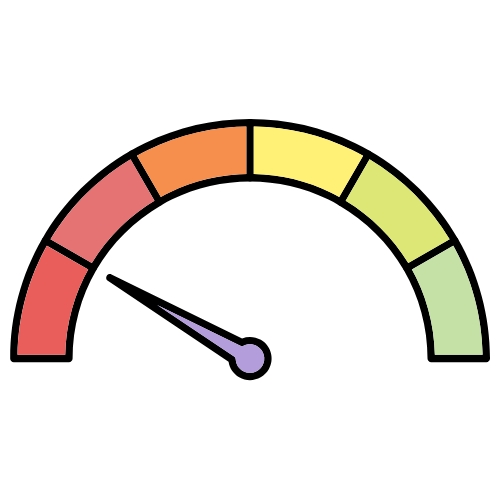
Harm to Credit Score
Defaulting on a loan can have a huge impact on your credit score, which is a measure of your creditworthiness. A low credit score can make it difficult to obtain credit in the future, as well as increase the cost of credit for those loans that you are able to obtain.
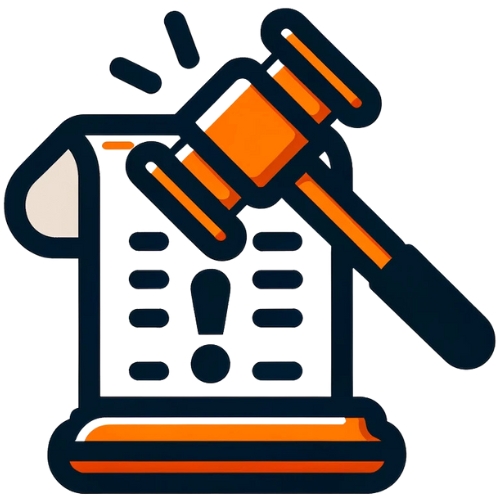
Legal Action by the Lender
If you default on a loan, the lender may take legal action against you to recover the debt. This may include filing a lawsuit or obtaining a judgement against you, which can have serious consequences for your financial well-being.
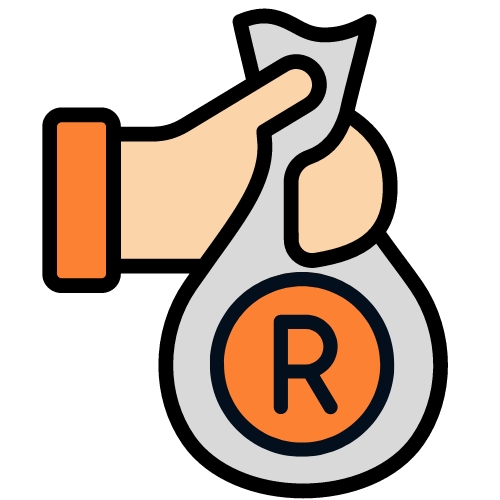
Collection Agencies
The lender may also use collection agencies to recover the debt. Collection agencies are third-party companies that specialise in collecting debts on behalf of creditors. They may contact you by phone, email, or mail to collect the debt.

Seizure of Assets
In some cases, the lender may seek to seize your assets, such as your car or your home, to recover the debt. This can be a devastating outcome for borrowers, as it can result in the loss of their most valuable possessions.
The Court Process for Loan Repayment in South Africa
If a lender takes legal action against you for defaulting on a loan, the court process for loan repayment in South Africa may include the following steps:
Summons
The first step in the court process is the issuance of a summons, which is a legal document that notifies you of the lawsuit and requires you to appear in court. The summons will specify the amount of the debt, the reason for the debt, and the date and time of the court hearing.
Default Judgement
If you fail to appear in court or respond to the summons, the lender may obtain a default judgement against you. A default judgement is a court order that requires you to pay the debt, and it can be enforced through a variety of legal means.
Warrant of Execution
If the debt remains unpaid, the lender may obtain a warrant of execution, which is a court order that authorises the seizure of your assets to repay the debt. This may include the seizure of your bank account, your car, or other valuable possessions.
Attachment of Earnings
The lender may also seek an attachment of earnings (a garnishee order), which is a court order that requires your employer to deduct a portion of your wages each pay period to repay the debt. This can have a huge impact on your ability to make ends meet, as a portion of your income will be taken each pay period to repay the debt.
Defense Against Legal Action for Loan Repayment
If you are facing legal action for defaulting on a loan, there are different defences that you can raise to protect your rights and minimise the impact of the lawsuit. Some of these defences include:
Negotiating a Payment Plan
If you are facing financial difficulties and are unable to repay the loan in full, you may be able to negotiate a payment plan with the lender. This may involve reducing the amount of the debt or extending the repayment period to make the payments more manageable.
Challenging the Reasonableness of the Loan Agreement
In some cases, the loan agreement may be invalid due to a mistake or error. If this is the case, you may be able to challenge the reasonableness of the loan agreement in court and have the debt lowered or discharged.
Raising Objections to the Court Process
If you believe that the court process for loan repayment is unfair or violates your rights, you may be able to raise objections to the court process. This may involve challenging the reasonableness of the summons or the default judgement or raising other objections to the court process.

Potential Outcomes of Court Proceedings in South Africa
When a borrower defaults on a loan and the case goes to court in South Africa, there are several potential outcomes. Understanding these outcomes can help borrowers prepare for what to expect and manage their situation effectively.
Judgement Against the Borrower
If the court rules against the borrower, the judgement will typically require the borrower to repay the outstanding loan amount, often with additional legal costs and interest. This can lead to several possible actions:
1. Repayment Plans
In some cases, the court may order a structured repayment plan that allows the borrower to repay the debt over a specified period. These plans are designed to make repayment more manageable by spreading the payments over time, taking into account the borrower’s financial situation. The terms of the repayment plan will be set by the court, and the borrower must adhere to this schedule to avoid further legal consequences.
2. Wage Garnishment
Another common outcome of a judgement against the borrower is wage garnishment. This is a court-ordered deduction from the borrower’s salary to repay the debt. The employer is legally required to withhold a portion of the borrower’s earnings and forward it directly to the creditor until the debt is fully paid. This method ensures regular and timely repayment, though it can significantly impact the borrower’s monthly income and financial stability.
Judgement in Favour of the Borrower
If the court finds in favour of the borrower, it means that the borrower is not held liable for the repayment under the current terms. This outcome can occur for several reasons, such as improper loan agreement procedures by the lender or the borrower successfully proving an inability to repay under the specific circumstances. The potential results of this judgement include:
1. Dismissal of the Case
A favourable judgement for the borrower can lead to the dismissal of the case. This means that the borrower is not required to repay the loan, and the lender cannot pursue further legal action regarding this particular debt. However, this does not necessarily eliminate the debt; it simply means that the court has ruled the lender’s current claim as invalid.
2. Loan Modification Agreements
In some instances, a judgement in favour of the borrower may result in the court facilitating a loan modification agreement. This involves altering the original terms of the loan to make repayment more feasible for the borrower. Modifications can include reducing the interest rate, extending the loan term, or adjusting the repayment schedule. This outcome aims to fairly resolve the borrower’s financial difficulties while ensuring the lender receives repayment.
Legal Process Overview for Unpaid Loans: South Africa vs. United Kingdom and United States
When handling unpaid loans, the legal processes differ between countries. Here is a detailed comparison for South Africa, the United Kingdom, and the United States.
| Aspect | South Africa | United Kingdom | United States |
|---|---|---|---|
| Initial Steps | Late payment notices, collection agencies | Late payment notices, collection agencies | Late payment notices, collection agencies |
| Formal Legal Action | Summons issued, court hearing | Claim filed in County Court, court hearing | Summons issued, court hearing |
| Court Involvement | Magistrates’ Court | County Court, High Court | Small Claims Court / Civil Court |
| Representation | Optional, can represent self | Optional, can represent self | Optional, can represent self |
| Debt Collection Notices | Section 129 Notice | Letter before action | Demand letter |
| Pre-Court Negotiation | Encouraged, Section 65A notice for financial enquiry | Encouraged, payment plans often negotiated | Encouraged, often via settlement negotiations |
| Court Filing Fee | Variable based on debt amount | Variable based on debt amount | Variable based on debt amount |
| Response Time | 10 business days to respond to summons | 14 days to acknowledge claim, 28 days to respond fully | Typically 20 days to respond to summons |
| Judgment Enforcement | Wage garnishment, asset attachment | Attachment of earnings, charging orders | Wage garnishment, bank levy, property lien |
Preventative Measures for Avoiding Court for Unpaid Loans
Taking proactive steps to manage your finances and avoid the serious consequences of unpaid loans is essential. Here are some effective preventative measures:
1. Budgeting and Financial Planning
Establish a monthly budget to track your income and expenses. Allocate funds for essential expenses, loan repayments, and savings. This will help you avoid overspending and ensure that you can meet all your financial obligations.
Plan for both short-term and long-term financial goals, including saving for emergencies, retirement, and significant purchases. A well-thought-out financial plan can help you avoid the pitfalls of unexpected expenses and missed loan payments.
2. Emergency Fund
Allocate funds into an emergency savings account to manage unforeseen costs like healthcare expenses, vehicle maintenance, or unemployment. Experts in finance advocate saving enough to cover at least three to six months of living costs in a convenient, easily reachable account.
Start by saving a small percentage of your income each month until you reach your goal. This fund will serve as a financial buffer and prevent you from defaulting on loan payments in case of unforeseen circumstances.
3. Debt Management Strategies
Focus on paying off high-interest loans first, as they can quickly balloon and become unmanageable. By reducing these debts, you can lower your overall financial burden and free up more funds for other obligations.
If you have multiple loans, consider consolidating them into a single loan with a lower interest rate. This can simplify your payments and reduce the total interest paid over time.
4. Regular Financial Review
Regularly check your credit report to ensure it accurately reflects your financial situation. Address any errors promptly, as they can negatively impact your credit score and loan eligibility.
Periodically review your income, expenses, and debts. Adjust your budget and financial plan as necessary to reflect changes in your financial circumstances.
5. Professional Financial Advice
Seeking advice from a financial advisor can provide you with tailored strategies for managing your debts and improving your financial health. They can help you create a realistic budget, plan for the future, and navigate complex financial situations.

Tips for Staying Debt-Free
To help avoid falling back into unwise financial patterns, consider the following strategies for maintaining a debt-free lifestyle:
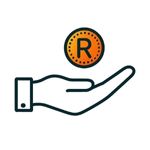
Choose to Pay with Available Funds
The phrase “cash is king” still holds true—aim to buy only what you can afford without relying on credit. Cash doesn’t necessarily mean physical notes; it simply means paying from money you already have.
Getting into the habit of saving up for purchases takes time but can significantly improve your financial discipline.
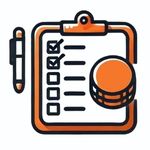
Create and Follow a Budget
Draw up a thorough weekly or monthly budget to track your income and expenses. This will help you stay in control of your spending and work toward clear financial goals.
Budgets also highlight areas of overspending, giving you a chance to adjust early. If pen and paper aren’t ideal, consider using budgeting apps.
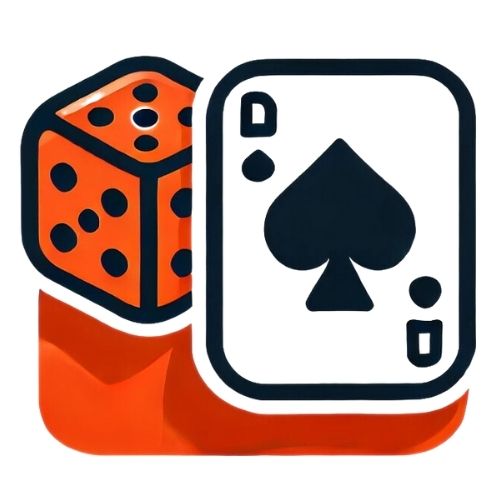
Steer Clear of High-Risk Activities like Gambling
Gambling and other high-risk behaviours often lead to unnecessary financial loss and can easily spiral into serious debt. Avoid these entirely to protect your finances.
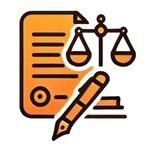
Use Credit Responsibly
Once you complete debt review, your access to credit will return—but use it wisely. Only apply for credit when necessary, monitor your credit score regularly, and ensure all payments are made on time.

Get Professional Guidance When Needed
If your spending becomes difficult to manage or you’re unsure about financial decisions, consult a qualified financial adviser. Professional input can help you make informed choices and avoid further debt.
Alternatives to Court Action for Loan Repayment
If you are struggling to repay a loan and are facing the possibility of court action, there are different alternatives to court action that you may consider. Some of these alternatives include:
Debt Counselling
Debt counselling is a process that helps borrowers to manage their debts and repay their loans in a more manageable way. This may involve negotiating with creditors to lower the amount of the debt, extend the repayment period, or lower the interest rate.
Debt Review
Debt review is a process that allows borrowers to have their debts reviewed by a debt counsellor. The debt counsellor will assess the borrower’s financial situation and work with creditors to restructure the debts in a way that is more manageable for the borrower.
Debt Agreement
Debt agreement is a process in which a debt agreement company negotiates with creditors on behalf of the borrower to lower the amount of the debt. This may involve reducing the total amount of the debt or extending the repayment period.
» Explore further: Are foreigners eligible for loans in South Africa?
Conclusion
Not paying back a loan can have serious consequences, both financially and legally. It is essential to understand the legal framework for loan repayment in South Africa, the consequences of defaulting on a loan, and the court process for loan repayment. Additionally, it is essential to understand the defences available to you if you are facing legal action for loan repayment and the alternatives to court action.
Frequently Asked Questions
The legal framework for loan repayment in South Africa is governed by the National Credit Act (NCA) and the National Credit Regulator (NCR) oversees this legislation. The NCA provides borrowers with several consumer protection rights and regulates the credit industry to ensure that lenders comply with the law.
Yes, in some cases the lender may seek to seize your assets, such as your car or your home, to recover the debt if you default on a loan in South Africa.
Some defences against legal action for loan repayment in South Africa include negotiating a payment plan, challenging the reasonableness of the loan agreement, and raising objections to the court process.
Yes, there are alternatives to court action for loan repayment in South Africa, including debt counselling, debt review, and debt agreement.
If you are facing loan repayment difficulties in South Africa, it is essential to seek professional advice. An experienced attorney or debt counsellor can help you navigate the legal and financial aspects of loan repayment and find a solution that works for your situation.
Fast, uncomplicated, and trustworthy loan comparisons
At Arcadia Finance, you can compare loan offers from multiple lenders with no obligation and free of charge. Get a clear overview of your options and choose the best deal for you.
Fill out our form today to easily compare interest rates from 19 banks and find the right loan for you.





